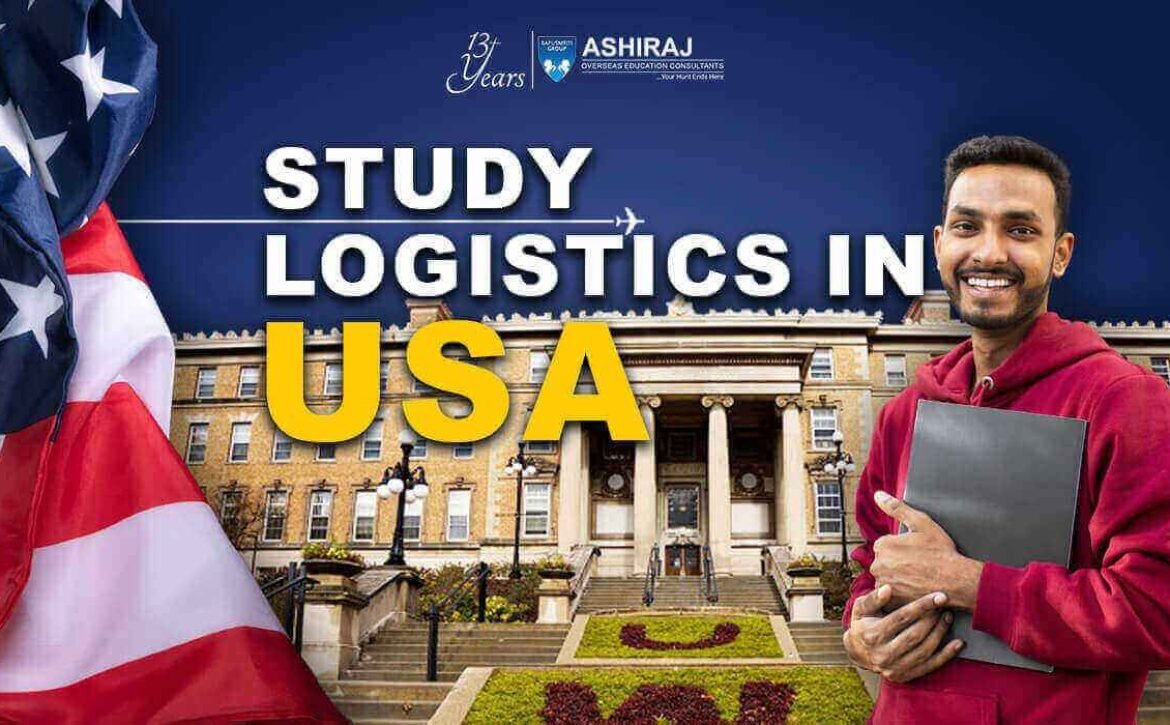
Logistics in USA
In the vast expanse of the United States, the seamless orchestration of supply chain operations is a critical element that drives the nation’s economic engine. Logistics in the USA represents a complex and interconnected web of activities involving transportation, distribution, and inventory management. As the heartbeat of commerce, efficient logistics ensure the timely movement of goods across the country, facilitating trade and sustaining industries. From bustling metropolitan centers to rural expanses, the intricacies of logistics in the USA underscore the importance of a well-coordinated network that caters to the diverse needs of businesses and consumers alike.
Logistics in the USA encompasses a myriad of modes, including road, rail, air, and sea transport, with a focus on optimizing routes and minimizing transit times. In a landscape characterized by geographic diversity, logistical prowess becomes paramount for businesses seeking to navigate the challenges of a vast and varied market. This introduction sheds light on the dynamic world of Logistics in the USA, emphasizing its role as a cornerstone of economic vitality and a catalyst for the nation’s robust commercial ecosystem.
Why to Study Logistics in the USA?
- Global Hub of Commerce: The United States stands as a global powerhouse in commerce, and studying logistics in the USA provides unparalleled exposure to a diverse and dynamic business landscape. The nation’s logistics infrastructure serves as a model for efficiency and innovation.
- Cutting-edge Technology Integration: Logistics in the USA is at the forefront of technological advancements. Students gain hands-on experience with state-of-the-art systems and tools, preparing them to navigate the evolving landscape of supply chain management.
- Industry Collaboration: Studying logistics in the USA opens doors to valuable industry connections. With a robust network of businesses, students have unique opportunities for internships, mentorship programs, and collaboration with key players in the logistics sector.
- Strategic Geographic Positioning: The vast geography of the USA necessitates strategic logistics planning. Studying in this environment allows students to understand the nuances of managing supply chains across diverse terrains and regions.
- Diverse Career Opportunities: The logistics sector in the USA offers a wide array of career paths, from transportation and distribution to inventory management. Graduates with expertise in logistics find themselves well-equipped for roles in various industries, contributing to the nation’s economic vitality.
In conclusion, studying logistics in the USA provides a comprehensive education, blending theoretical knowledge with practical experience in a thriving and competitive environment. The nation’s logistics sector, marked by innovation and efficiency, ensures that students are well-prepared for impactful careers in the dynamic field of supply chain management.
Top Universities to Study Logistics in USA
University | QS World University Ranking 2023 | Type of University | Average Annual Fees | Programs Offered |
Massachusetts Institute of Technology (MIT) | 1 | Private Research | $54,976 | Supply Chain Management, Logistics Engineering |
Stanford University | 2 | Private Research | $56,169 | Logistics and Operations Management, Transportation Systems |
Harvard University | 3 | Private Ivy League | $57,950 | Logistics and Supply Chain Management |
University of California, Berkeley | 7 | Public Research | $44,007 (in-state), $53,523 (out-of-state) | Global Supply Chain Management, Logistics and Operations Research |
Georgia Institute of Technology | 10 | Public Research | $33,794 (in-state), $48,394 (out-of-state) | Logistics, Trade and Transportation, Supply Chain Engineering |
Exploring the list of top universities in the USA for Logistics in USA reveals prestigious institutions with diverse programs and renowned faculty. MIT, topping the QS World University Rankings, offers programs like Supply Chain Management and Logistics Engineering. Stanford University follows closely, providing education in Logistics and Operations Management. Harvard University, a distinguished Ivy League institution, offers programs tailored to Logistics and Supply Chain Management. The University of California, Berkeley, known for its public research, provides options in Global Supply Chain Management and Logistics and Operations Research. Lastly, the Georgia Institute of Technology, ranking 10th, emphasizes Logistics, Trade and Transportation, and Supply Chain Engineering. With varying annual fees and program offerings, these universities stand as educational beacons for those aspiring to excel in the dynamic field of Logistics in the USA.
Course Curriculum for Logistics in USA
- Foundational Courses: Logistics programs in the USA typically commence with foundational courses covering key concepts such as supply chain management, transportation, and inventory control. These courses establish a solid understanding of the fundamental principles of logistics.
- Advanced Logistics Management: As students progress, they delve into advanced courses focusing on strategic logistics management. Topics include optimization of supply chain processes, risk management, and the integration of cutting-edge technologies in logistics.
- Global Supply Chain Strategies: Given the international nature of trade, logistics programs in the USA often incorporate courses on global supply chain strategies. Students explore the intricacies of managing supply chains across borders and addressing the challenges of a globalized marketplace.
- Technology Integration: A significant emphasis is placed on technology within logistics curricula. Courses cover the implementation of logistics software, data analytics, and emerging technologies like IoT (Internet of Things) to enhance efficiency and decision-making.
- Industry-specific Electives: Many programs offer electives tailored to specific industries, allowing students to specialize in areas such as e-commerce logistics, healthcare logistics, or manufacturing logistics.
- Practical Experience: To bridge theory and practice, logistics programs in the USA often include hands-on components, such as internships, case studies, and real-world projects with industry partners.
The course curriculum of Logistics in USA programs is designed to equip students with a comprehensive skill set, preparing them for the dynamic challenges of managing supply chains in a diverse and evolving business landscape.
Eligibility Criteria & Admission Requirements for Logistics in USA
- Academic Qualifications: Applicants to logistics programs in the USA typically need a bachelor’s degree in a relevant field. A strong academic background in business, engineering, or logistics-related disciplines is preferred.
- English Proficiency Test: Proficiency in English is crucial. Most universities accept either IELTS or TOEFL scores as proof of English proficiency. A minimum score, usually around 6.5 for IELTS or 80 for TOEFL, is commonly required.
- Standardized Tests: While GRE (Graduate Record Examination) or GMAT (Graduate Management Admission Test) scores are not always mandatory, many programs consider them during the admission process. These scores help assess a candidate’s analytical and quantitative skills.
- Documentation: Applicants must provide essential documents, including a valid passport and a student visa. The student visa application process involves demonstrating financial capability, intent to return to the home country, and acceptance into a recognized logistics program.
- Academic Certificates: Submission of academic transcripts and certificates from previous educational institutions is a standard requirement. These documents validate the applicant’s academic achievements and qualifications.
- Work Experience: While work experience is not always mandatory, some logistics programs may prefer candidates with relevant industry experience. Professional experience can enhance an applicant’s profile, demonstrating practical knowledge and commitment to the field.
Ensuring compliance with these eligibility criteria is crucial for prospective students aspiring to pursue logistics in the USA, facilitating a smooth admission process and setting the foundation for a successful academic journey.
Documents Required for Studying Logistics in USA
- Passport: A valid passport is a fundamental requirement for international students. Ensure it remains valid for the entire duration of your logistics program in the USA.
- Letters of Recommendation (LOR): Submit two Letters of Recommendation from academic or professional references. LORs provide insights into your character, capabilities, and suitability for the logistics program.
- Statement of Purpose (SOP): Craft a compelling SOP detailing your motivations, career aspirations, and why you chose logistics in the USA. This document allows the admissions committee to understand your goals and commitment to the field.
- Curriculum Vitae (CV): Prepare a comprehensive CV outlining your educational background, work experience, skills, and any relevant achievements. A well-crafted CV adds depth to your application.
- Official Transcripts and Educational Certificates: Provide official high school transcripts and certificates, along with any additional academic qualifications. These documents validate your educational background and eligibility for the logistics program.
- Work Experience Certificate: If applicable, include a work experience certificate to highlight any relevant industry experience. This adds value to your application and demonstrates practical knowledge.
- Proof of Financial Resources: Showcase your ability to finance your logistics education in the USA. This may include bank statements, sponsorship letters, or scholarship notifications.
Ensuring the timely submission of these documents is essential for a smooth application process and increases the likelihood of securing admission to a logistics program in the USA.
Admission Process for Logistics in USA
- Research and Choose Programs: Begin by researching logistics programs in the USA. Consider factors such as program structure, faculty, and industry connections. Select programs aligned with your career goals in Logistics in the USA.
- Check Eligibility Criteria: Review the specific eligibility requirements for each chosen program. Ensure you meet academic, English proficiency, and any standardized test criteria, such as GRE or GMAT.
- Prepare Necessary Documents: Gather essential documents, including a valid passport, Letters of Recommendation (LORs), Statement of Purpose (SOP), Curriculum Vitae (CV), official transcripts, educational certificates, work experience certificates, and proof of financial resources.
- English Proficiency Test: Take either the IELTS or TOEFL and achieve the minimum required score. Proficiency in English is crucial for success in logistics programs in the USA.
- Standardized Tests: If required, take and submit scores for standardized tests like GRE or GMAT. These scores may be considered during the admissions process.
- Submit Online Application: Complete the online application for your chosen logistics program. Provide accurate personal and academic information, and upload all required documents.
- Pay Application Fees: Pay the application fees as specified by the university. Keep track of deadlines to ensure timely submission.
- Await Admission Decision: After submitting your application, patiently await the admission decision. Universities typically communicate decisions through official channels or online portals.
- Apply for Student Visa: Once admitted, initiate the student visa application process. Provide necessary documentation, including the acceptance letter from the logistics program.
- Prepare for Departure: Upon securing a student visa, make travel arrangements and prepare for your journey to begin your studies in Logistics in the USA.
“Education is the most powerful weapon which you can use to change the world.”
Nelson Mandela
Cost of Logistics Course in USA
- Tuition Fees: Logistics in the USA involves tuition fees, varying among universities and programs. On average, students can expect to pay between $30,000 to $60,000 per year. Public universities may offer lower tuition for in-state residents.
- Accommodation: The cost of living, including accommodation, varies based on the city and lifestyle. On-campus housing or shared apartments can range from $800 to $2,000 per month. Research affordable options to manage living expenses.
- Books and Supplies: Budget for textbooks and supplies, with an estimated cost of $1,000 to $1,500 annually. Some programs may provide digital resources, reducing this expense.
- Health Insurance: Health insurance is mandatory for international students. The cost ranges from $500 to $1,500 per year, depending on the coverage provided.
- Transportation: Consider transportation costs, including public transit or owning a vehicle. Monthly expenses can range from $50 to $200.
- Miscellaneous Expenses: Budget for miscellaneous expenses such as food, personal items, and entertainment. This can amount to approximately $300 to $500 per month.
- Student Fees: Factor in student fees, covering services like health centers and recreational facilities. These fees may range from $500 to $1,000 per year.
Understanding the comprehensive cost of studying Logistics in the USA allows students to plan their budget effectively and make informed decisions regarding their education and living expenses.
Scholarships for Logistics Courses in USA
Scholarship Name | Amount | Application Deadline |
Logistics Excellence Scholarship | $5,000 – $15,000 | March 15, 2023 |
Global Supply Chain Fellowship | Full Tuition + Stipend | January 31, 2023 |
Future Leaders in Logistics Award | $10,000 | April 1, 2023 |
International Student Grant | $2,000 – $5,000 | Rolling Admissions |
Women in Logistics Scholarship | $7,500 | February 28, 2023 |
Scholarships for Logistics in USA
- Logistics Excellence Scholarship: Ranging from $5,000 to $15,000, this scholarship supports students showcasing excellence in logistics. The deadline for applications is March 15, 2023.
- Global Supply Chain Fellowship: Offering full tuition coverage along with a stipend, this fellowship provides significant financial support. The application deadline is January 31, 2023.
- Future Leaders in Logistics Award: Recognizing emerging leaders in the field, this award provides $10,000. Applicants should submit their materials by April 1, 2023.
- International Student Grant: This grant, with amounts between $2,000 and $5,000, follows rolling admissions, allowing flexibility for applicants.
- Women in Logistics Scholarship: Geared towards promoting diversity, this scholarship awards $7,500. The deadline for submissions is February 28, 2023.
Exploring these scholarship opportunities is crucial for those pursuing education in Logistics in the USA, offering financial assistance and recognizing outstanding achievements in the field.
Career Opportunities After Logistics in USA
Job Profile | Average Salary (Per Annum) |
Logistics Manager | $80,000 – $120,000 |
Supply Chain Analyst | $60,000 – $90,000 |
Transportation Coordinator | $50,000 – $70,000 |
Warehouse Operations Manager | $70,000 – $100,000 |
Procurement Specialist | $65,000 – $95,000 |
Career Opportunities After Logistics in USA
- Logistics Manager: Responsible for overseeing the entire supply chain process, Logistics Managers in the USA earn an average salary ranging from $80,000 to $120,000 per annum.
- Supply Chain Analyst: Analyzing and optimizing supply chain processes, Supply Chain Analysts command an average annual salary between $60,000 and $90,000.
- Transportation Coordinator: Coordinating the movement of goods, Transportation Coordinators earn an average salary ranging from $50,000 to $70,000 per year.
- Warehouse Operations Manager: Managing warehouse operations efficiently, Warehouse Operations Managers in the USA earn an average annual salary between $70,000 and $100,000.
- Procurement Specialist: Responsible for sourcing and purchasing goods, Procurement Specialists command an average salary ranging from $65,000 to $95,000 per annum.
Exploring these career opportunities in Logistics in the USA opens avenues for professionals to contribute to the dynamic supply chain landscape while enjoying competitive salaries and diverse roles within the field.
Frequently Asked Questions About Logistics in USA
Logistics in the USA offers a vast scope, given the country’s extensive supply chain network. It encompasses various industries, including manufacturing, e-commerce, and healthcare, providing diverse career opportunities.
While requirements may vary, most programs require a bachelor’s degree in a relevant field. Some may also consider work experience and standardized test scores like GRE or GMAT.
Tuition fees for logistics programs in the USA range from $30,000 to $60,000 per year. Additional costs include accommodation, living expenses, and miscellaneous fees.
Yes, numerous scholarships are available, such as the Logistics Excellence Scholarship and the Women in Logistics Scholarship, offering financial support to eligible students.
The job market for logistics professionals in the USA is robust. Job roles include Logistics Manager, Supply Chain Analyst, and Transportation Coordinator, with competitive salaries.
Yes, international students on F-1 visas can work on-campus part-time and off-campus during authorized periods, such as internships related to their field of study.
Most logistics programs are at the graduate level and typically take one to two years to complete, depending on the degree and individual pace of study.
While not always mandatory, some programs prefer candidates with relevant work experience. Professional experience can enhance the application but is not a strict requirement.
Key skills include problem-solving, analytical thinking, effective communication, and a strong understanding of supply chain processes and technologies.
International students can apply for a student visa (F-1) by obtaining an acceptance letter from a U.S. school, paying the SEVIS fee, and scheduling a visa interview at the U.S. embassy or consulate in their home country.




